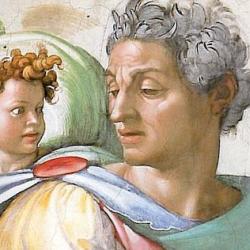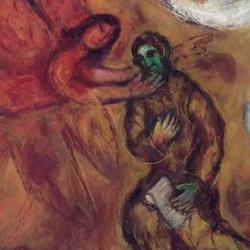The Hebrew word beten frequently means “womb” (Genesis 25:23; Number 5:22; Psalm 22:9-10; 71:6; Jeremiah 1:5). In a few instances, though, the word is used in unusual contexts.
When Yahweh offers Ezekiel a scroll to eat, He orders him to eat it with his beten and to fill his “bowels” ( me’ah ) with it. Ezekiel takes the scroll into himself not only as food, but also as a sort of seed, and the words that he speaks are “born” from the womb that receives the scroll.
In Jonah 2, a great fish swallows the prophet, who goes down into the fish’s bowels ( me’ah ; Jonah 2:1). Deep in the sea, Jonah cries out from the womb ( beten ) of Sheol (2:2). That is not only a description of being in the depths of the sea or the belly of the fish; because Sheol is a womb, it promises new life. Sure enough, Jonah is soon vomited out of the belly of the fish, born again from the womb of Sheol.
It’s the sign of Jonah: Sheol’s barren womb made fruitful.










